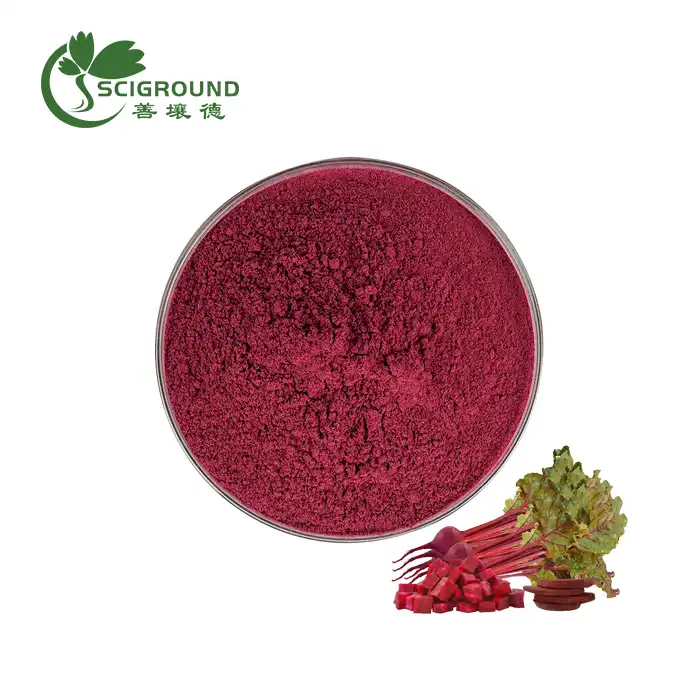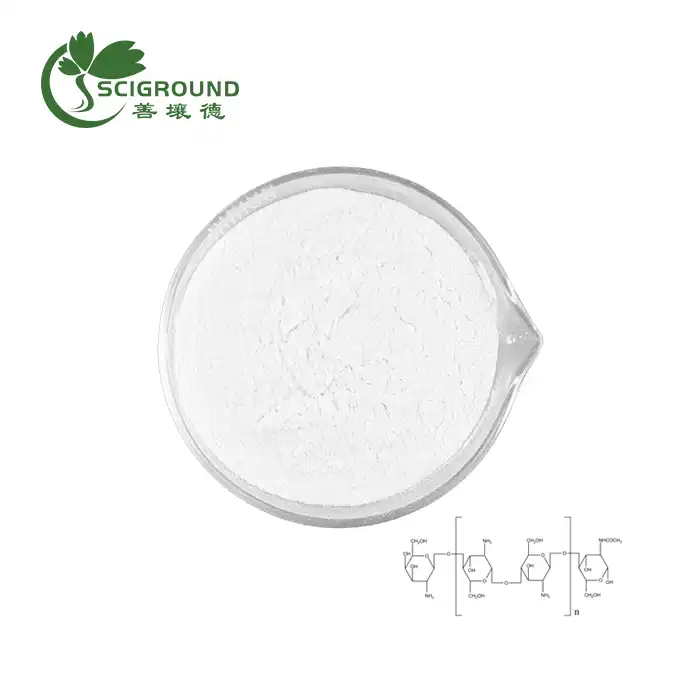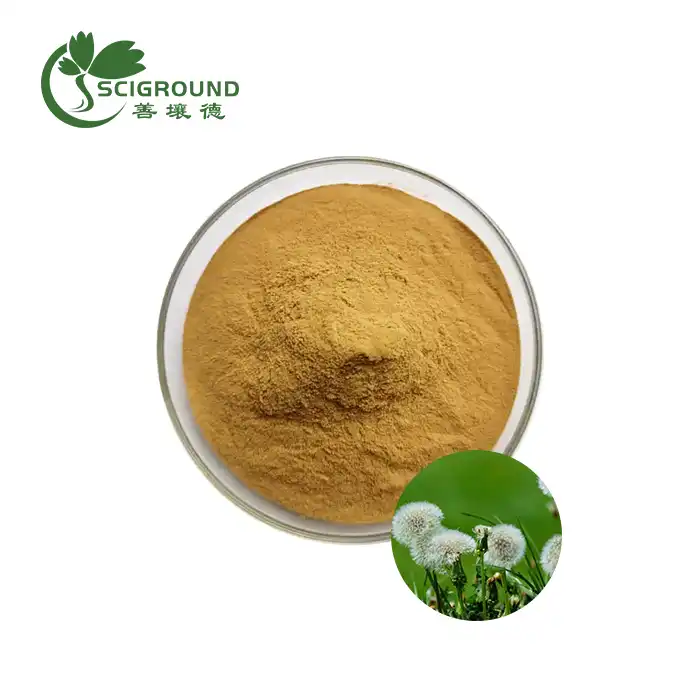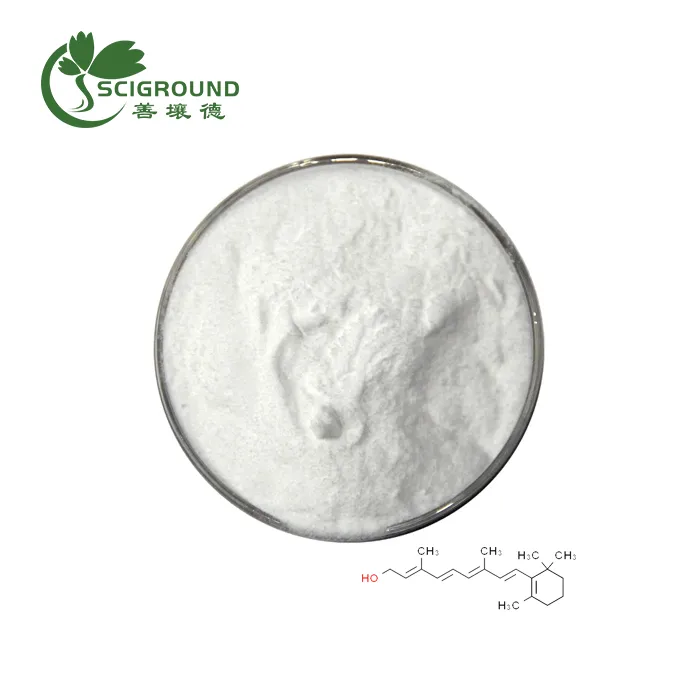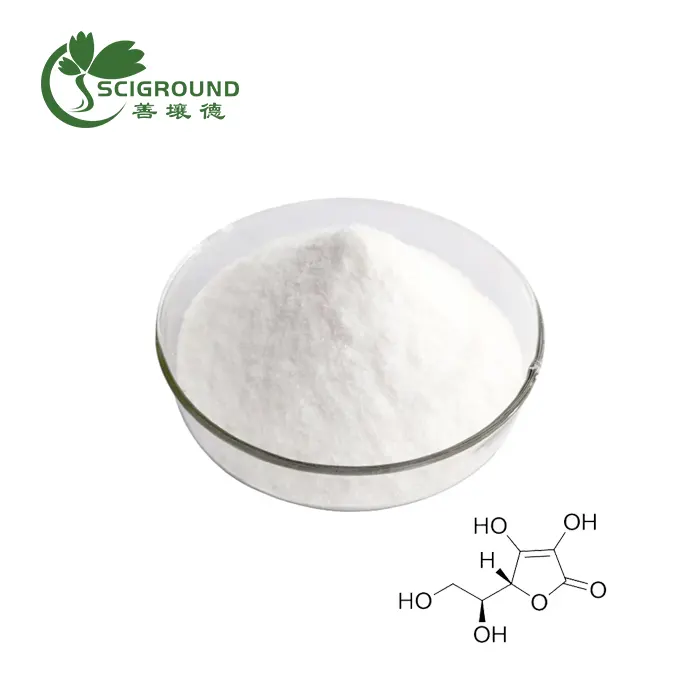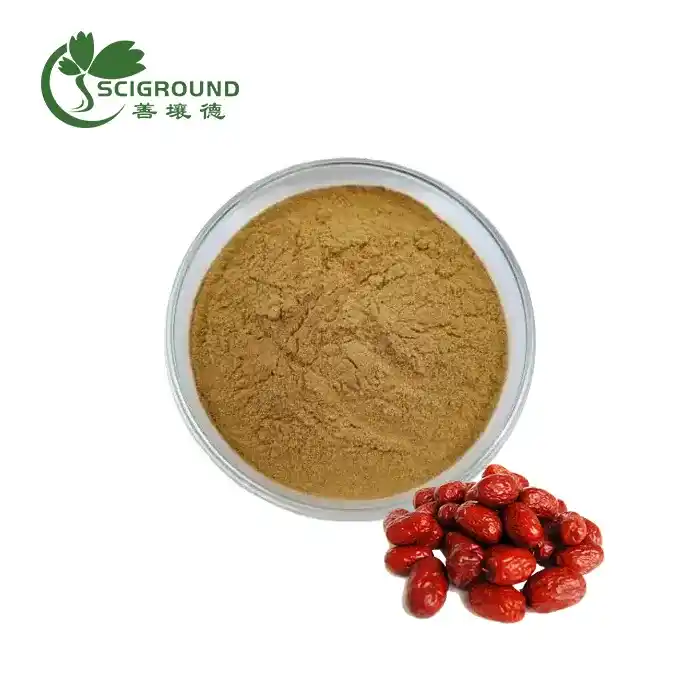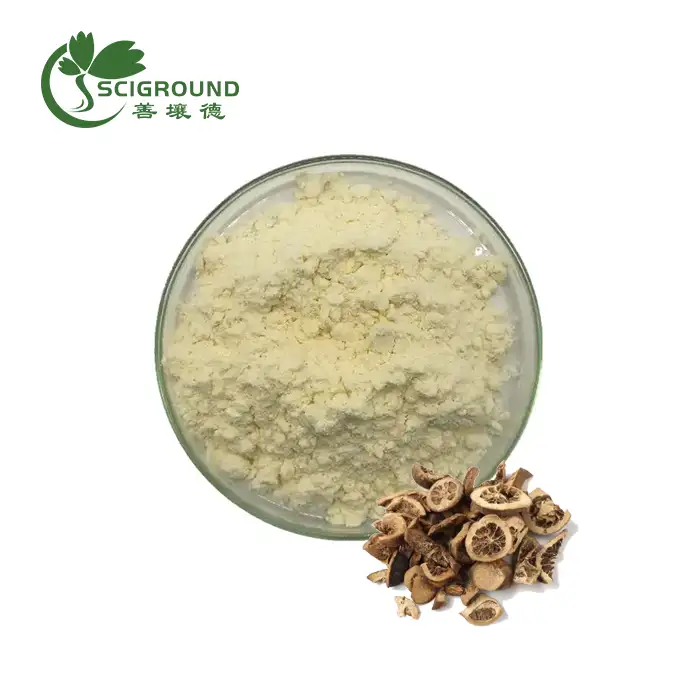Corn Silk Benefits
Corn silk can work with blood thickening, lower pulse, direct glucose levels, and is known for its calming properties.
What is corn silk?
Corn silk powder refers to the fine, soft, yellowish threads or strands from the female flower of maize. It is often discarded as waste material, but corn silk actually contains many beneficial nutrients and has been used traditionally for medicinal purposes.
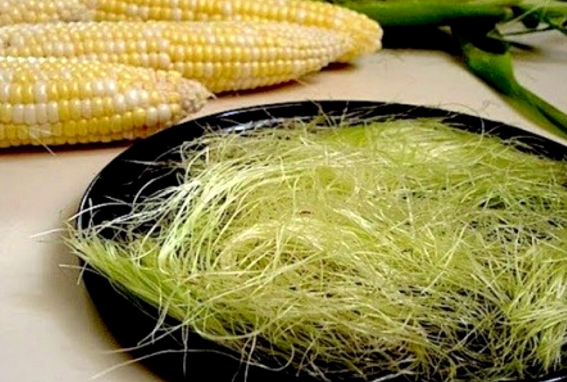
What nutrients are in corn silk?
Corn silk extract powder contains proteins, carbohydrates, vitamins, minerals, and phytochemicals that provide nutritional and potential therapeutic value. Key nutrients found in corn silk include:
Flavonoids - Antioxidants that help protect cells from damage. May have anti-inflammatory effects.
Saponins - Have antioxidant, anti-inflammatory, and anticancer activities.
Policosanols - Have antioxidant effects and may help lower cholesterol.
Phytosterols - Plant compounds similar to cholesterol which may help lower cholesterol.
Vitamins C, K, and E - Important antioxidants. Vitamin C boosts immunity, vitamin K aids blood clotting, and vitamin E protects cell membranes.
Minerals like potassium, calcium, magnesium, iron, and zinc - Essential for many bodily functions like fluid balance, bone health, oxygen transport, immunity, and enzyme reactions.
Carotenoids like lutein and zeaxanthin - Antioxidants that are important for eye health.
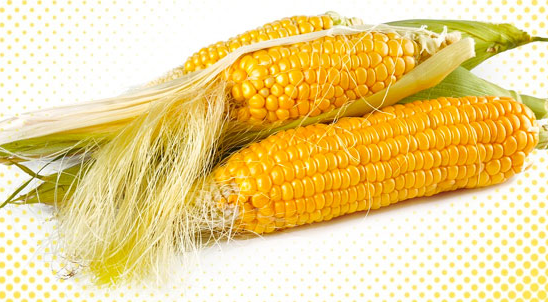
Corn Silk Benefits
Here are some of the top potential corn silk benefits:
Kidney health
corn silk extract has diuretic properties, meaning it increases urine output. This helps flush toxins and excess water from the body. Corn silk may help inhibit the growth of kidney stones and prevent UTIs due to its antimicrobial properties. It is used in traditional herbal medicine to treat bladder infections, kidney stones, and urinary retention. Studies show corn silk extracts help increase urination in animal models.
Skin health
Corn silk contains vitamin C, flavonoids, and other antioxidants that combat free radical damage to skin cells. This helps reduce signs of aging like wrinkles and spots. It also has anti-inflammatory properties that can soothe skin conditions like eczema or psoriasis. Applying corn silk extract or infused oil may hydrate, soothe, and nourish the skin.
Weight loss
The diuretic effects of corn silk may reduce water weight and bloating. However, more human research is needed to confirm effects on weight loss.
Cholesterol lowering
Animal studies show corn silk extracts can lower LDL "bad" cholesterol and triglyceride levels in the blood. The phytosterols and policosanols in corn silk may inhibit cholesterol absorption in the gut. More studies are needed to confirm this effect.
Digestive health
Traditionally used to soothe upset stomachs, corn silk contains antioxidants and anti-inflammatory compounds that may relieve inflammation in the gut. More studies are warranted to determine effects on conditions like IBS or leaky gut syndrome.
Cancer prevention
Early lab studies show corn silk extract may inhibit the growth and spread of certain cancer cells, like prostate, liver, breast, and lung cancer cells. More research is needed to understand anticancer mechanisms and effects in humans.
Antioxidant effects
The flavonoids, phenolic acids, carotenoids, and other antioxidants in corn silk neutralize damaging free radicals throughout the body. This helps protect against oxidative stress which is linked to many chronic diseases.
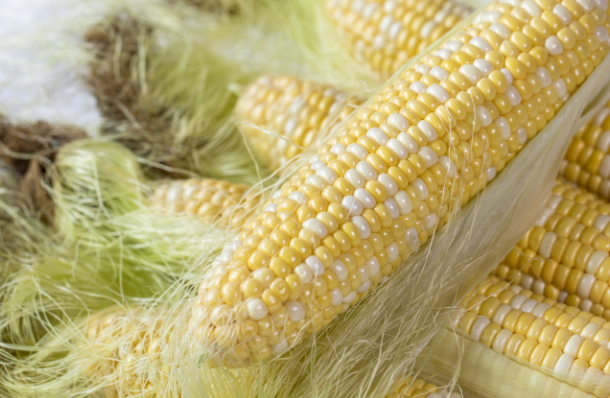
Can you eat corn silk?
Yes, corn silk is edible. It has a sweet, mild corn flavor. The silks can be eaten raw, dried, or steeped to make tea. Fresh corn silk goes well in salads, salsas, grain bowls, or smoothies. Dried corn silk can be ground to powder and added to foods or drinks.
However, not all corn silk is safe to eat. It's important to use only organic corn silk that has not been treated with chemical pesticides or herbicides. Also, avoid corn silk from decorative corn, which may contain toxins.
Who shouldn’t eat corn silk?
Despite potential benefits, certain groups should use caution with corn silk:
Pregnant or breastfeeding women - Not enough research exists on safety. Avoid use.
Children - Corn silk may act as a diuretic and deplete nutrients and fluids. Avoid use without medical guidance.
Diabetics - May affect blood sugar control. Monitor levels closely if using.
Prior to surgery - May interact with anesthesia or thin the blood. Stop use at least 2 weeks before a scheduled surgery.
Kidney disease - May exacerbate kidney problems. Use only under medical supervision.
Gallbladder issues - Possible gallbladder contraction. Avoid use if you have gallstones.
Medication interactions - May interact with lithium, diuretics, heart medications, and diabetes drugs. Speak to your doctor.
Corn Silk Benefits for kidney
Here's how corn silk may benefit the kidneys:
Diuretic action helps flush toxins from kidneys
Helps prevent kidney stones
Reduces accumulation of uric acid
May help treat UTIs and bladder infections
Anti-inflammatory properties protect kidney tissue
Antimicrobial effects fight bacteria that cause UTIs
Mildly increases urine potassium, which supports kidney function
Traditionally used to treat kidney inflammation and weakened kidney function
Research shows corn silk extracts enhance urine output and electrolyte excretion in animal models. Human studies are still limited. Always consult your doctor before using corn silk for kidney health.
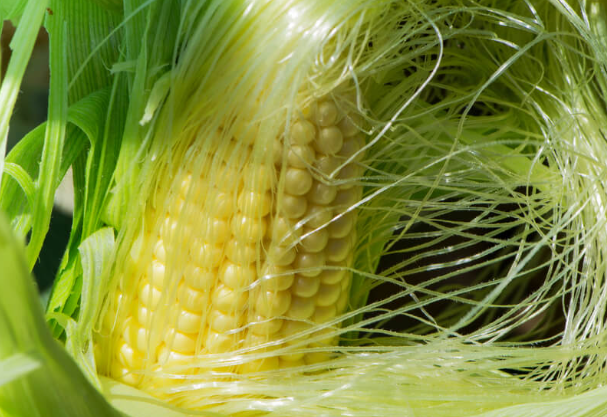
Corn Silk Benefits for skin
Corn silk may benefit the skin in these ways:
Contains vitamin C to boost collagen production
Antioxidants like flavonoids fight premature skin aging
Anti-inflammatory properties calm inflammatory skin conditions
May help treat conditions like eczema, psoriasis, acne
Hydrating effect helps skin retain moisture
Vitamin K aids wound healing and reduces scarring
Lutein protects skin from UV light damage
Applying corn silk infused oil moisturizes and nourishes skin
Gentle exfoliating action removes dead skin cells
Studies show corn silk extracts exhibit antioxidant, anti-inflammatory, and antimicrobial effects on skin cells. More clinical trials are needed to confirm topical benefits for humans. Speak to your dermatologist before trying corn silk remedies.
Corn Silk Benefits for weight loss
Corn silk may support weight loss in these ways:
Acts as a natural diuretic to reduce water retention
Helps flush out toxins and excess sodium
May suppress appetite due to fiber content
Promotes fat metabolism by increasing bile production
Provides antioxidants that may enhance fat burning
Diuretic effect decreases bloating and puffiness
However, human studies are lacking. While corn silk shows potential, it should not replace conventional weight loss measures like dietary changes and exercise. Work with a dietitian or doctor for the healthiest approach to weight management.
Corn Silk Benefits for hair
Here's how corn silk might improve hair health:
Contains collagen building blocks to strengthen hair strands
Antioxidants like flavonoids protect follicles from damage
Vitamin C boosts collagen production for hair growth
Vitamin K activates growth factors involved in the hair cycle
Lutein protects hair from UV light damage
Anti-inflammatory effects nourish hair follicles
Corn silk rinses may add shine, softness, manageability
Anecdotal evidence it may prevent premature graying
Applying corn silk oil may reduce dandruff and itchy scalp
However, human research is limited. Further studies are needed on the use of corn silk for hair care. Consult your dermatologist first before using corn silk on hair.
Corn Silk Benefits for dogs
Some potential corn silk benefits for dogs include:
Diuretic effect helps flush toxins from kidneys
May help prevent kidney and bladder stones
Antimicrobial properties combat UTIs
Anti-inflammatory effects soothe bladder inflammation
May improve urinary incontinence problems
Provides B vitamins, minerals, and antioxidants
Fiber content aids digestion and bowel regularity
However, moderate amounts are best for dogs. Too much corn silk may leach nutrients due to diuretic effects. Consult your vet before feeding corn silk to dogs.
Corn Silk Benefits for liver
Corn silk may benefit the liver in these ways:
Antioxidants like flavonoids protect liver cells from damage
May help regenerate liver tissue and improve liver function
Diuretic effect helps reduce fluid retention caused by liver disease
Increases bile production which supports fat digestion
Antimicrobial effects may inhibit growth of harmful gut bacteria
Anti-inflammatory properties help reduce liver inflammation
May help lower ALT, AST, and ALP - enzymes indicating liver damage
However, human studies are lacking. More research is needed before corn silk can be recommended to support liver health. Always speak to your doctor first.

Can I drink corn silk tea everyday?
Drinking corn silk tea in moderation is likely safe for most healthy adults. Benefits may include:
Staying hydrated
Gentle diuretic effect
Nutrients like vitamins C, K, B complex
Antioxidants and anti-inflammatory compounds
However, drinking too much corn silk tea daily may cause:
Excessive urination and fluid/electrolyte imbalance
Nutrient deficiencies if overused long term
Digestive issues like diarrhea or cramping
Dizziness, headache, weakness from dehydration
For best results, limit intake to 1-2 cups of corn silk tea per day. Monitor your fluid intake and urine output. Avoid exceeding 3 cups daily without medical approval. Talk to your doctor about any concerns.
How do you use corn silk for hair growth?
Here are some ways to use corn silk for potential hair growth benefits:
Make corn silk tea, allow to cool, and use as a daily rinse after shampooing
Create a leave-in spray by brewing corn silk tea and adding oils like jojoba or grapeseed
Mix corn silk powder into a nourishing oil like coconut or olive and massage into scalp
Apply corn silk infused oil to hair overnight then wash out in the morning
Add dried corn silk pieces directly into your favorite conditioner
Take corn silk supplements in capsule form but consult your doctor on proper dosage
However, human data is lacking to support corn silk for hair growth. Research is limited to anecdotal reports. Work with your dermatologist to ensure safety and efficacy.

Is corn water good for your kidneys?
There is some evidence that corn water, made by boiling corn cobs in water, may benefit kidney health. Potential effects include:
Diuretic action helps flush toxins and excess fluids
May help prevent kidney stones
Nutrients like potassium support kidney function
Anti-inflammatory effects protect kidney tissue
Fiber content aids detoxification
However, human studies are limited. Corn water may interact with certain medications or medical conditions. Speak with your nephrologist before trying corn water for kidneys. Monitor urine output and fluid levels. More research is needed on proper dosage and duration of use.
In moderation, corn water may support kidney health. But it should not replace conventional medical treatment. Consult your physician regarding any kidney concerns.
To place an order for corn silk extract powder, kindly reach out to Sciground at info@scigroundbio.com.
References:
Maksimović, Z., & Kovačević, N. (2003). Preliminary assay on the antioxidative activity of maydis stigma extracts. Fitoterapia, 74(1-2), 144-147.
Ebrahimzadeh, M. A., Nabavi, S. F., Nabavi, S. M., Eslami, B., & Rahmani, Z. (2010). Antioxidant and antihaemolytic activities of Cornus mas fruit extract. Pharmacologyonline, 1, 793-802.
Sadeghi, Z., Valizadeh, J., Shermeh, O. A., & Akaberi, A. (2015). Antioxidant activity and total phenolic content of Boerhavia elegans (choisy) grown in Baluchestan, Iran. Avicenna journal of phytomedicine, 5(1), 1.
Maksimović, Z. A., Malenčić, Đ. J., & Kovačević, N. Z. (2005). Polyphenol contents and antioxidant activity of Maydis stigma extracts. Bioresource technology, 96(8), 873-877.
About Author

Celine Xu is a botanist with over 15 years of experience researching and developing plant extracts for nutritional and pharmaceutical applications. She leads an R&D team focused on identification, cultivation and extraction of medicinal plants. Celine Xu earned a Ph.D. in Plant Biology has authored numerous articles in peer-reviewed journals about the health benefits of specific phytochemicals. She frequently speaks at industry conferences about new developments in plant extract research. Celine Xu is dedicated to advancing the scientific understanding of how targeted plant compounds can be used to improve human health.
Related Industry Knowledge
- What are the interactions of Motherwort Extract Powder?
- What is the use of Macleaya cordata?
- Where is aloe emodin found?
- Should I take fisetin in the morning or at night?
- What Foods Have Vitamin B5
- Broccoli Extract Powder: A Comprehensive Guide
- Forsythia Extract: Unlocking Nature's Wellness Secrets
- What is capsaicin
- Can I take vitamin B1 every day?
- Shiitake Mushroom Extract: Uncovering Its Health Benefits
